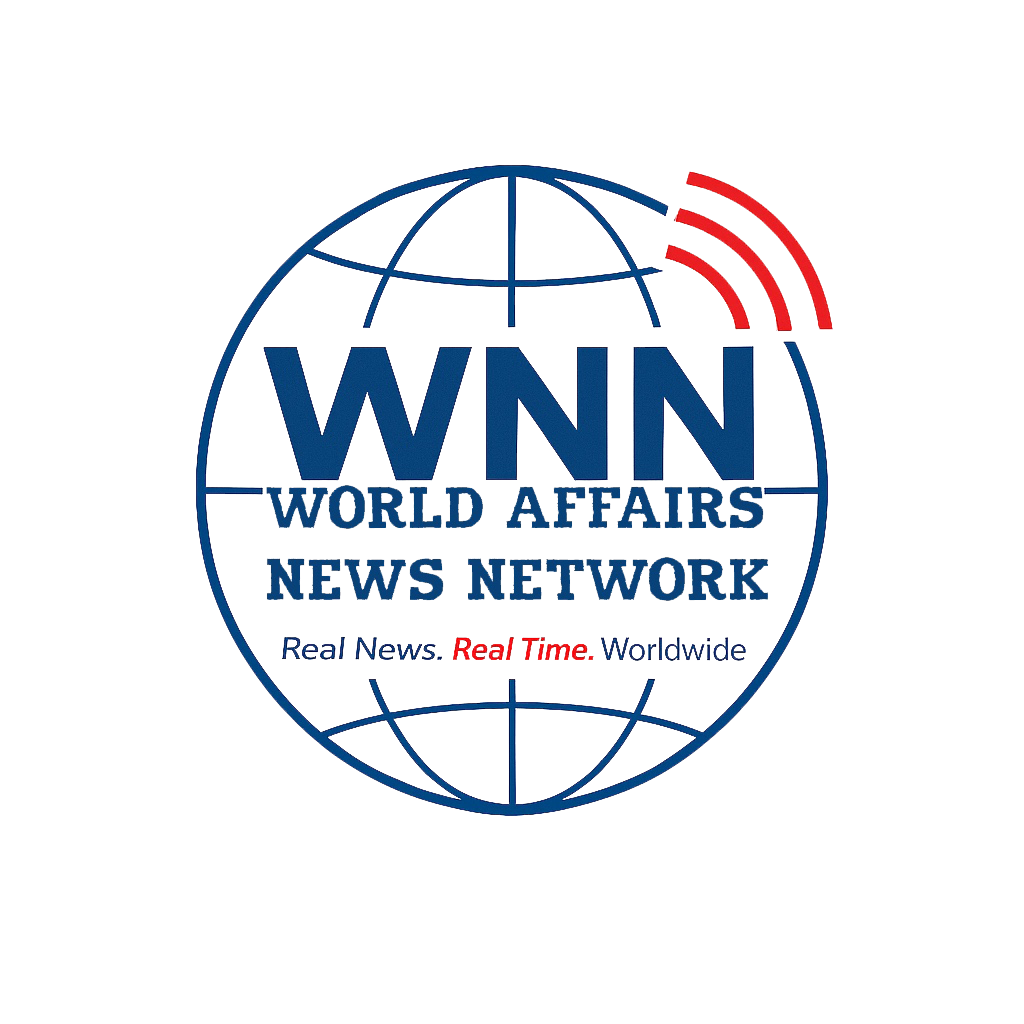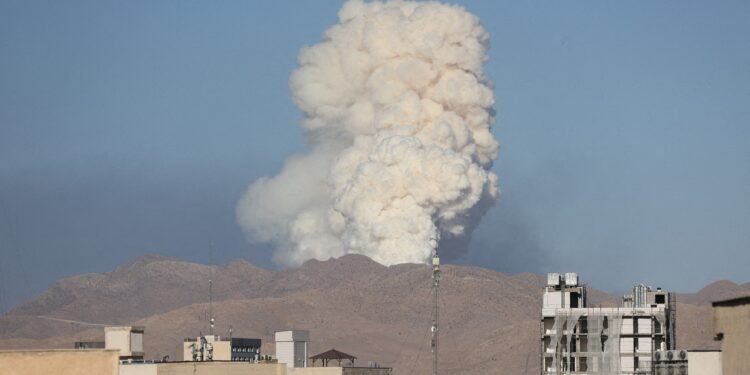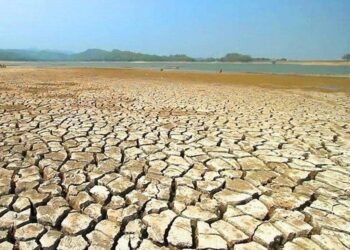ISTANBUL/WASHINGTON/JERUSALEM: The world braced on Sunday for Iran’s response after the U.S. attacked key Iranian nuclear sites, joining Israel in the biggest Western military action against the Islamic Republic since its 1979 revolution.
With the damage visible from space after 30,000-pound U.S. bunker-buster bombs crashed into the mountain above Iran’s Fordow nuclear site, Tehran vowed to defend itself at all costs.
It fired another volley of missiles at Israel that wounded scores of people and flattened buildings in Tel Aviv. The U.S. State Department ordered employees’ family members to leave Lebanon and advised citizens elsewhere in the region to keep a low profile or restrict travel.
An advisory from the U.S. Department of Homeland Security warned of a “heightened threat environment in the United States.” Law enforcement in major U.S. cities stepped up patrols and deployed additional resources to religious, cultural and diplomatic sites.
Tehran has so far not followed through on its threats of retaliation against the United States – either by targeting U.S. bases or trying to choke off global oil supplies – but that may not hold.
Speaking in Istanbul, Iranian Foreign Minister Abbas Araqchi said his country would consider all possible responses. There would be no return to diplomacy until it had retaliated, he said.
“The U.S. showed they have no respect for international law. They only understand the language of threat and force,” he said.
Ali Shamkhani, an adviser to Iran’s Supreme Leader Ayatollah Ali Khamenei, said on X that the initiative was “now with the side that plays smart, avoids blind strikes. Surprises will continue!”
U.S. President Donald Trump, in a televised address, called the strikes “a spectacular military success” and boasted that Iran’s key nuclear enrichment facilities had been “completely and totally obliterated.”
But his own officials gave more nuanced assessments and – with the exception of satellite photographs appearing to show craters on the mountain above Iran’s subterranean plant at Fordow – there has been no public accounting of the damage.
The U.N. nuclear watchdog, the International Atomic Energy Agency, said no increases in off-site radiation levels had been reported after the U.S. strikes.
IAEA Director General Rafael Grossi told CNN that it was not yet possible to assess the damage done underground. A senior Iranian source told Reuters that most of the highly enriched uranium at Fordow had been moved elsewhere before the attack. Reuters could not immediately corroborate the claim.
Trump immediately called on Iran to forgo any retaliation, saying the government “must now make peace. If they do not, future attacks would be far greater and a lot easier,” he said.
U.S. Vice President JD Vance said Washington was not at war with Iran but with its nuclear programme, adding this had been pushed back by a very long time due to the U.S. intervention.
In a step towards what is widely seen as Iran’s most effective threat to hurt the West, its parliament approved a move to close the Strait of Hormuz. Nearly a quarter of global oil shipments pass through the narrow waters that Iran shares with Oman and the United Arab Emirates.
Iran’s Press TV said closing the strait would require approval from the Supreme National Security Council, a body led by an appointee of Khamenei.
Attempting to choke off Gulf oil by closing the strait could send global oil prices skyrocketing, derail the world economy and invite almost certain conflict with the U.S. Navy’s massive Fifth Fleet, based in the Gulf and tasked with keeping the strait open.
Security experts have long warned a weakened Iran could also find other unconventional ways to strike back, such as bombings or cyberattacks.
U.S. Secretary of State Marco Rubio, in an interview on “Sunday Morning Futures with Maria Bartiromo,” warned Iran against retaliation for the U.S. strikes, saying such action would be “the worst mistake they’ve ever made.”
Rubio separately told CBS’s “Face the Nation” talk show that the U.S. has “other targets we can hit, but we achieved our objective.”
“There are no planned military operations right now against Iran,” he later added, “unless they mess around.”
The U.N. Security Council was due to meet later on Sunday, diplomats said, at the request of Iran, which urged the 15-member body “to address this blatant and unlawful act of (US) aggression, to condemn it in the strongest possible terms.”
DIVERGING WAR AIMS
Israeli officials, who began the hostilities with a surprise attack on Iran on June 13, have increasingly spoken of their ambition to topple the hardline Shi’ite Muslim clerical establishment that has ruled Iran since 1979.
U.S. officials, many of whom witnessed Republican President George W. Bush’s popularity collapse following his disastrous intervention in Iraq in 2003, have stressed that they were not working to overthrow Iran’s government.
“This mission was not and has not been about regime change,” Defense Secretary Pete Hegseth told reporters at the Pentagon. “The president authorised a precision operation to neutralise the threats to our national interests posed by the Iranian nuclear programme.”
Senator Lindsey Graham, a staunch Trump ally, said on NBC’s “Meet the Press with Kristen Welker” program that Israeli Prime Minister Benjamin Netanyahu had told him his country would no longer endure being under missile attack.
“They’re not going to live under threat from Iran anymore,” Graham said. “Israel’s made a decision. This regime is going to change in one of two ways: they’re going to change their behavior, which I doubt, the regime itself, or the people are going to replace the regime.”
Iranians contacted by Reuters described their fear at the prospect of an enlarged war involving the United States.
“Our future is dark. We have nowhere to go – it’s like living in a horror movie,” Bita, 36, a teacher from the central city of Kashan, said before the phone line was cut.
Much of Tehran, a capital city of 10 million people, has emptied out, with residents fleeing to the countryside to escape Israeli bombardment.
Iranian authorities say more than 400 people have been killed since Israel’s attacks began, mostly civilians. Israel’s bombardment has scythed through much of Iran’s military leadership with strikes targeted at bases and residential buildings where senior figures slept.
Iran has been launching missiles back at Israel, killing at least 24 people over the past nine days, the first time its projectiles have penetrated Israel’s defences in large numbers. The elite Revolutionary Guards said they had fired 40 missiles at Israel in the latest volley overnight.
Air raid sirens sounded across most of Israel on Sunday, sending millions of people to safe rooms.
In Tel Aviv, Aviad Chernovsky, 40, emerged from a bomb shelter to find his house had been destroyed in a direct hit. “It’s not easy to live now in Israel (right now), but we are very strong. We know that we will win,” he said.
Trump had veered between offering to end the war with diplomacy or to join it, at one point musing publicly about killing Iran’s supreme leader. His decision ultimately to join the fight is the biggest foreign policy gamble of his career.
-Parisa Hafezi, Phil Stewart and Maayan Lubell





















